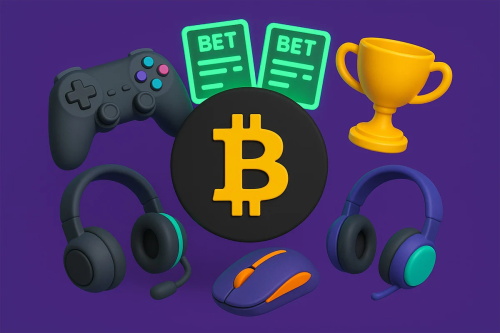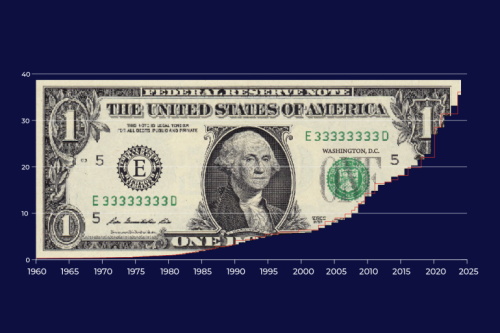Tokenizing Esports Clubs: How Fan Tokens Unlock Revenue Sharing and Voting Rights

As the esports industry becomes increasingly commercialized, the role of fans is quietly evolving. From merely watching competitions to actively participating in club operations, a new type of digital asset—Fan Tokens—is triggering a profound transformation in the relationship between fan economies, Web3 technologies, and the future of esports.
What Are Fan Tokens?
At their core, fan tokens are digital currencies built on blockchain technology. Unlike NFTs, they are interchangeable and can be bought, sold, or traded like any other standard cryptocurrency. By purchasing these tokens, fans can gain access to exclusive content, memorabilia, and VIP perks. More importantly, they often receive voting rights on certain club decisions.
While these voting rights are typically symbolic—such as choosing jersey colors, deciding on social media slogans, or helping to plan event details—they do offer an unprecedented sense of participation. For many loyal fans, the experience of having “a vote that counts” offers a level of engagement far beyond traditional spectating.
Fan tokens have already gained a noticeable presence in the crypto market. According to CoinMarketCap data as of June 2025, the total market capitalization of fan tokens has reached $234 million USD. This figure reflects not only their commercial potential, but also the growing number of fans choosing to support their favorite esports ecosystems with their wallets.
How Do They Work?
Fan tokens are typically issued by esports clubs, either distributed for free via airdrops or sold to fans and speculators. Like Bitcoin or ETH, these tokens can be traded on secondary markets and are subject to supply-demand price fluctuations—fully governed by the laws of the market.
Unlike NFTs, fan tokens are fungible—each token is identical in value and function. However, the rights and symbolic meaning attached to them can be significant.
Take the example of leading esports team OG, whose OG Fan Token grants holders the ability to vote on minor club decisions. Additionally, token holders can enter raffles to win match tickets, limited-edition memorabilia, and even NFT merchandise.
This token-based model fits seamlessly into the culture of esports. In FPS and MOBA games, players are already familiar with trading skins, items, and digital assets. Fan tokens simply formalize and legitimize the “off-game” trading experience—making adoption easy and intuitive for this audience.
Why Are Esports Clubs Embracing Tokenization?
The esports industry is under increasing pressure to commercialize. Traditional revenue streams—tournament prizes, sponsorships, and streaming income—are no longer sufficient. Fan tokens present esports clubs with a new avenue for growth—one that extends their reach beyond traditional markets and enables scalable engagement with a global fanbase.
On one hand, issuing tokens brings clubs closer to their global fan base, transcending geographical boundaries and boosting fan loyalty. On the other, through voting and rewards mechanisms, fans evolve from passive “viewers” into active “co-governors.”
Moreover, token revenues can directly support club operations, player salaries, and prize pools—creating a virtuous cycle of “fan engagement → financial backing → club development.”
But Tokens Aren’t a Magic Wand: Risks and Controversies
Although fan tokens show considerable potential, they also come with inherent controversies and pose notable structural risks that shouldn't be overlooked.
First, the decentralized nature of blockchain conflicts with the esports industry’s centralized reality. In the esports ecosystem, game developers typically hold centralized authority over tournaments, IP rights, and the platforms where competitions are hosted. These companies are unlikely to relinquish control over event operations, prize pools, or brand licensing to decentralized token systems.
Another major concern lies in the unpredictable nature of cryptocurrency markets. The value of fan tokens can swing dramatically depending on changes in investor mood and broader market trends. In the event of a crash or platform shutdown, token values could plummet to zero—leaving fans who paid real money for a sense of participation with nothing but disappointment.
Moreover, the perceived level of fan involvement can often be deceptive. While the idea of voting rights sounds empowering, if the decisions are always limited to superficial matters like “jersey design” or “promo slogans,” then the so-called “governance” is little more than a marketing gimmick.
Esports of the Future: More Than Just a Viewing Experience
The esports industry is moving toward an era of deep user participation, and fan tokens are the bridge to this transformation. They blur the lines between fan and investor, merging emotional engagement, speculative interest, and community power into a new form of digital fandom.
But this road is far from smooth. It requires a delicate balance among clubs, platforms, and fans: enabling meaningful engagement without turning fans into exploited cash cows.
If that balance can be achieved, then the future of esports will not just be a battlefield for a few players on screen—it will become a multilayered, participatory ecosystem. And fan tokens may very well be the key that unlocks this new world.



